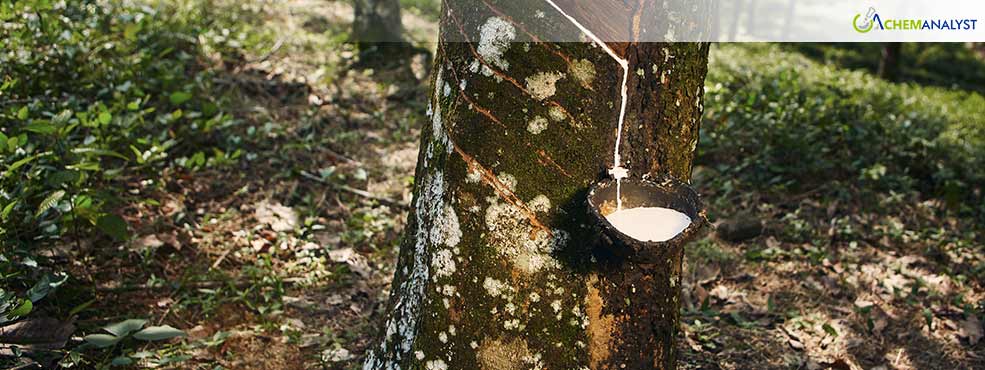Welcome To ChemAnalyst

The INROAD (Indian Natural Rubber Operations for Assisted Development) project, an ambitious collaboration between India’s largest tyre manufacturers—Apollo Tyres, CEAT, JK Tyre, and MRF—has begun reshaping the landscape of rubber production in India. Aiming to cultivate two lakh hectares of rubber plantations across Northeast India and West Bengal, the project has already made significant strides, with 1.25 lakh hectares completed. Once fully realized, this project is poised to be a game-changer not only for the rubber industry but also for the chemical sector, marking a new era of growth, innovation, and sustainability.
The immediate impact of the INROAD project will be felt in the rubber supply chain. Rubber is a key component in the chemical industry, used extensively in the production of rubber chemicals, which are critical for tyre manufacturing, adhesives, paints, coatings, and a host of other industrial applications. By significantly increasing the domestic supply of rubber, the project will help stabilize prices and ensure a more reliable source of high-quality natural rubber for chemical manufacturers. This is especially critical in sectors like automotive, construction, and medical devices, where consistent raw material supply is crucial for production timelines and cost efficiency.
In addition to its direct impact on the chemical sector, the project will help localize supply chains, reducing dependence on imports of raw materials and mitigating the risks associated with global supply chain disruptions. With the Northeast region's share in India's natural rubber plantation poised to increase dramatically, India can move closer to self-sufficiency, creating a more resilient economy while fostering local economic growth. The project is expected to uplift the socio-economic conditions of 2.5 lakh beneficiaries, providing employment opportunities, improving livelihoods, and elevating the standard of living in rural areas.
For the chemical industry, the ripple effects of this increased rubber production will extend beyond just raw material supply. Rubber chemicals such as accelerators, plasticizers, antioxidants, and vulcanizing agents are vital to enhancing the performance and durability of rubber products. The availability of higher quantities of domestically sourced rubber will allow Indian chemical companies to expand their research and development efforts, creating more innovative formulations and specialized rubber products. Furthermore, as the domestic supply of rubber increases, chemical manufacturers can expect to see more cost-effective production, translating to more competitive pricing for both domestic and international markets.
Environmental sustainability is another key pillar of the INROAD project. The project advocates for sustainable agricultural practices in rubber cultivation, ensuring minimal environmental degradation and promoting long-term ecological health. The expansion of rubber plantations in Northeast India offers a more sustainable alternative to traditional agricultural practices, supporting soil conservation and biodiversity while simultaneously boosting rubber production.
In conclusion, the INROAD project is not just about increasing rubber plantations; it’s about creating a sustainable, self-sufficient rubber industry that aligns with the evolving needs of the chemical sector. With a robust pipeline of rubber and rubber chemicals expected to flow through Indian markets in the coming years, the chemical industry will be poised for growth, reduced volatility, and enhanced global competitiveness. As the project continues to expand, it promises to catalyze a new wave of economic development, technological innovation, and environmental sustainability across India’s industrial sectors.
We use cookies to deliver the best possible experience on our website. To learn more, visit our Privacy Policy. By continuing to use this site or by closing this box, you consent to our use of cookies. More info.
